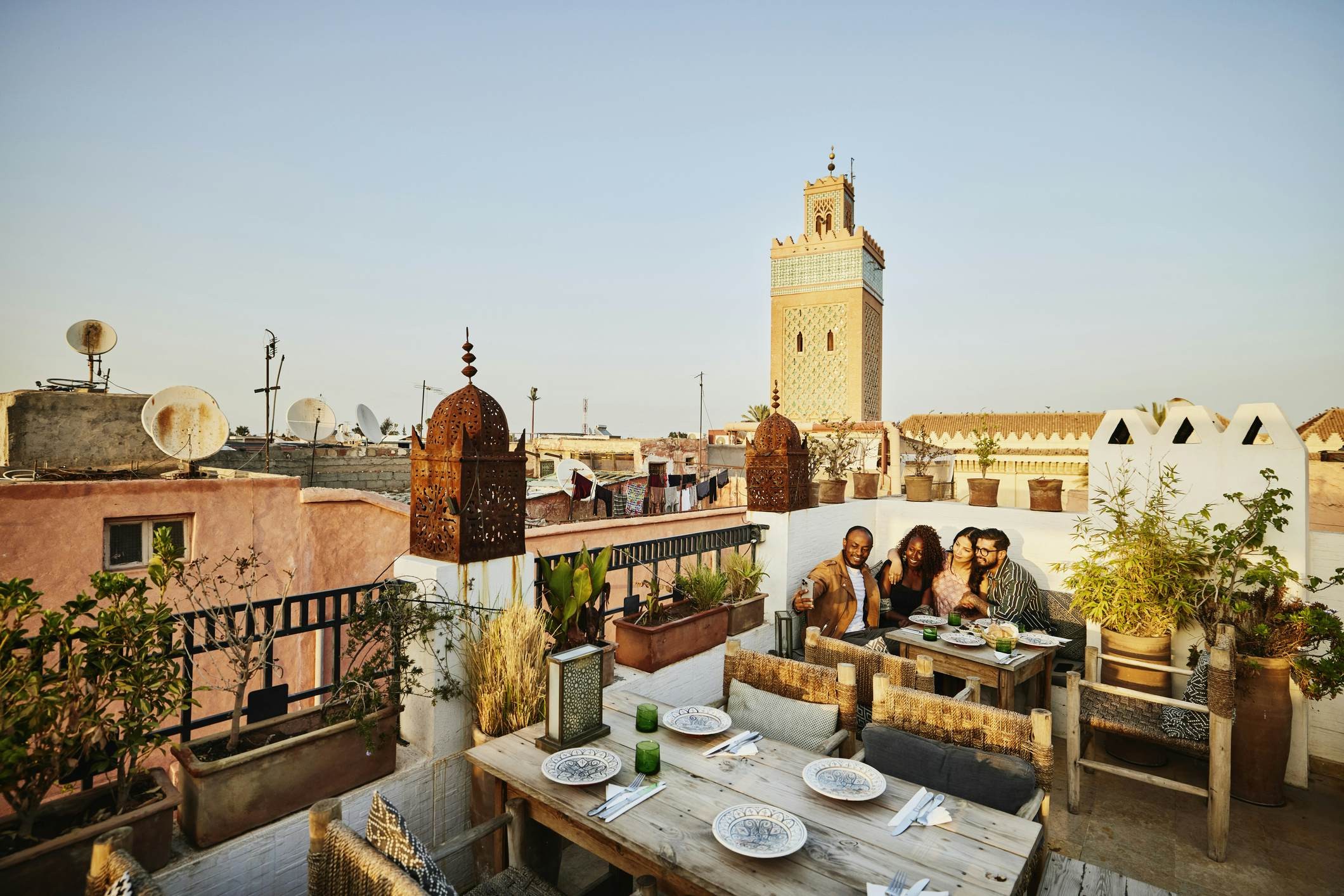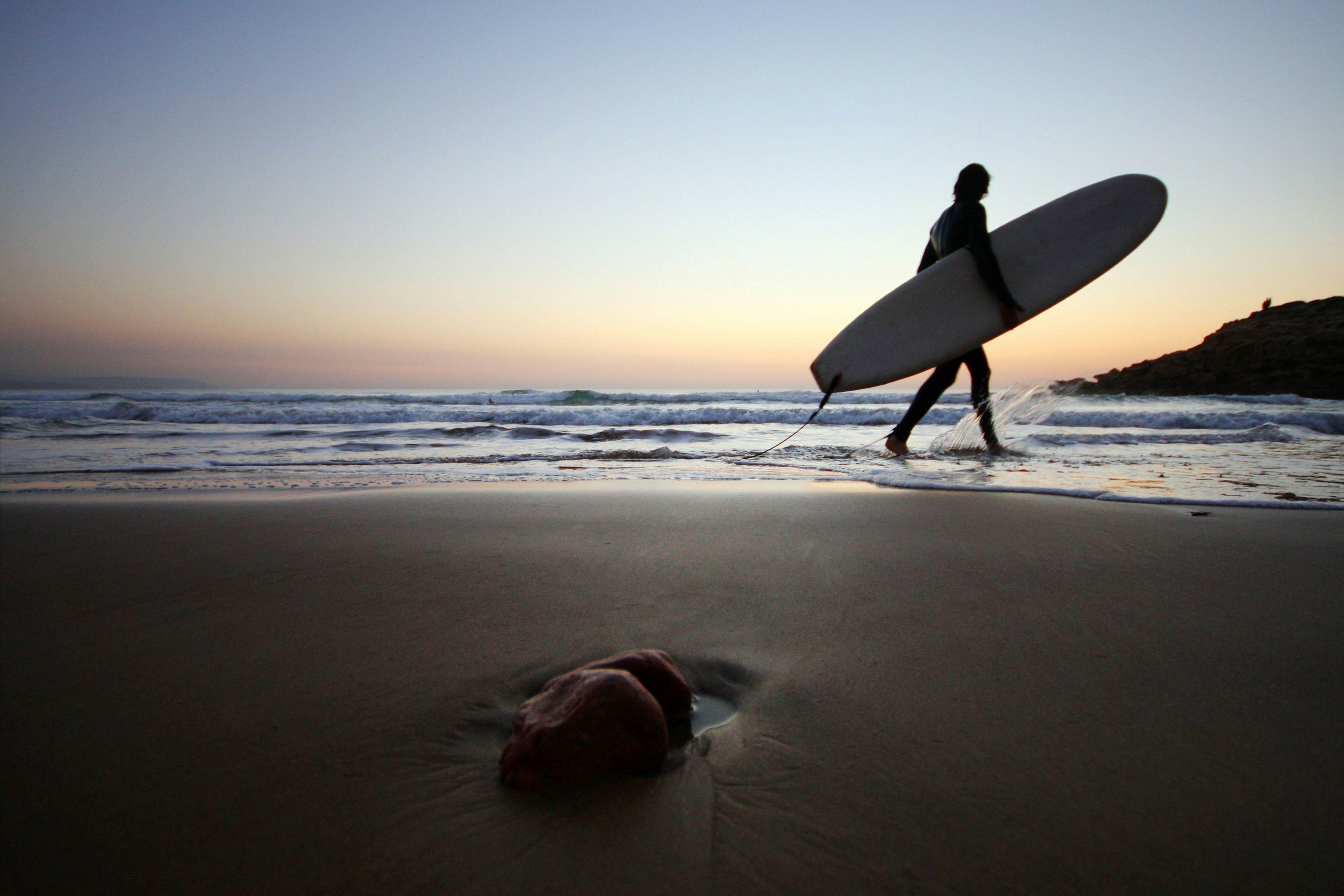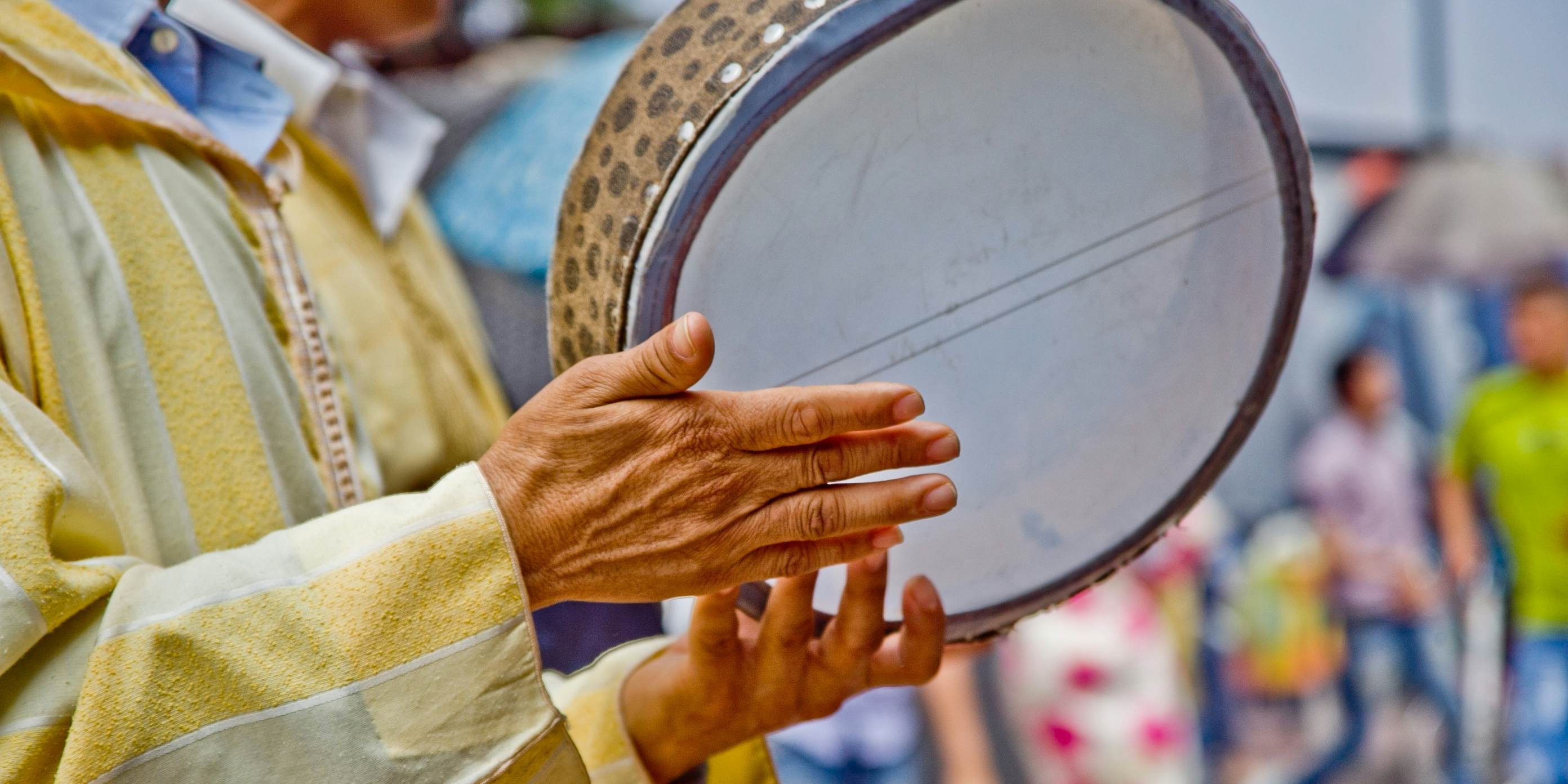Planning a trip to Morocco? Travels.edu.vn reveals the best time to visit, considering weather, festivals, and activities. Discover the ideal periods for cultural immersion, outdoor adventures, and unforgettable experiences, ensuring a fantastic journey with optimal travel deals and seasonal travel tips.
1. Understanding Morocco’s Climate for Optimal Travel
Morocco, a land of diverse landscapes and rich culture, is a year-round destination, but the best time to visit depends on your priorities. Whether you’re seeking pleasant weather, fewer crowds, specific activities, or cultural experiences, understanding Morocco’s climate is crucial for planning your trip.
1.1. Seasonal Variations in Morocco
Morocco experiences distinct seasonal variations, each offering a unique travel experience:
- Spring (March to May): Mild temperatures, blooming landscapes, and pleasant weather make it ideal for exploring cities, hiking, and cultural activities.
- Summer (June to August): Hot and dry inland, but coastal areas offer respite with cooling breezes. Perfect for beach holidays, water sports, and music festivals.
- Autumn (September to November): Similar to spring, with mild temperatures and fewer crowds. Excellent for hiking, cultural tours, and exploring the Sahara Desert.
- Winter (December to February): Cooler temperatures, especially in the mountains and desert. Suitable for city explorations, skiing in the Atlas Mountains, and surfing along the Atlantic coast.
1.2. Regional Climate Differences
Morocco’s climate varies significantly by region:
- Coastal Regions: Enjoy a Mediterranean climate with mild temperatures year-round, influenced by the Atlantic Ocean.
- Inland Cities (Marrakesh, Fes): Experience hot, dry summers and mild winters.
- Atlas Mountains: Have a mountain climate with cooler temperatures and snow in winter.
- Sahara Desert: Experience extreme temperature variations, with hot days and cold nights.
2. Best Times for Specific Activities and Interests
Morocco offers a wide range of activities and attractions. Here’s a guide to the best times to visit based on your specific interests:
2.1. Hiking and Trekking in the Atlas Mountains
The best time for hiking in the High Atlas Mountains is during spring (April to June) and autumn (September to November).
- Mild temperatures: Ideal trekking conditions for all fitness levels.
- Festival des Roses: In May, visit the M’Goun Valley during the Festival des Roses for a unique cultural experience.
- Wildflowers and blossoms: Spring is perfect for trekking in the Anti-Atlas mountains, with wildflowers, spring blossoms, and quiet trails.
 Hikers enjoying a scenic trail in the High Atlas Mountains with clear blue skies
Hikers enjoying a scenic trail in the High Atlas Mountains with clear blue skies
Alt text: Hikers marvel at the breathtaking vistas of the High Atlas Mountains under a clear, azure sky.
2.2. Exploring the Sahara Desert
Visit Morocco’s Sahara Desert in May and October for comfortable temperatures.
- Desert camps: Most desert camps are closed from June to August due to excessive heat.
- Winter months: Days are shorter from December to February, and nights can be freezing, especially when sleeping under canvas.
- Sandstorms: Occur from January to May, so wear a Tuareg scarf to protect your face from the sand and sun.
2.3. Surfing and Water Sports
The best time for surfing along Morocco’s Atlantic coast is from December to February.
- Largest waves: Winter sees the largest waves, attracting surfers to Taghazout, Mirleft, and Sidi Ifni.
- Taghazout: A lively center for surf culture, hosting an annual surf expo in October and international competitions like the World Surf League in January and February.
- Beginner surfers: The mellower waves from June to November are ideal for beginner and intermediate surfers.
- Kitesurfing and windsurfing: Possible year-round in Essaouira and Dakhla, with reliable high winds from April to September due to the thermal effect along the Moroccan coastline.
- Kitesurfing competition: An annual international kitesurfing competition is held in Dakhla at the end of September.
2.4. Cultural Festivals and Events
Morocco is known for its vibrant festivals and cultural events. Here are some of the best:
- Fez Festival of World Sacred Music: Dates vary from June to September.
- Essaouira’s Gnaoua World Music Festival: In June.
- Asilah Festival: In July and October.
- Jazzablanca: In Casablanca in June.
- Mawazine: In Rabat, set to return in 2024 after a three-year hiatus.
- Yennayer, the Amazigh New Year: Falls in the first week of January.
2.5 Bird Watching
For bird enthusiasts, spring and fall are the best times to visit, especially in Oualidia and Souss-Massa National Park. These locations attract migratory birds, offering prime opportunities for bird watching.
 A surfer riding a wave in Taghazout at sunset, capturing the essence of Moroccan surf culture
A surfer riding a wave in Taghazout at sunset, capturing the essence of Moroccan surf culture
Alt text: A lone surfer carves through a wave at sunset in Taghazout, Morocco’s surf capital.
3. Avoiding Crowds and Peak Seasons
To experience Morocco without the crowds, consider traveling during the shoulder seasons (September to November and March to May). These months offer pleasant weather and fewer tourists.
3.1. Traveling During Ramadan
Check the dates for Ramadan, the Muslim month of fasting, as these change each year. This is a quiet and spiritual time to experience Morocco. Many food establishments close during the day, but you’ll still find places to eat at hotels.
3.2. Tips for Off-Season Travel
- Lower prices: Enjoy lower accommodation and tour prices.
- Less crowded attractions: Experience popular sights without the usual crowds.
- Authentic experiences: Engage with locals and experience the culture more intimately.
4. Month-by-Month Guide to Traveling in Morocco
Here’s a detailed month-by-month guide to help you plan your trip to Morocco:
4.1. January
- Weather: Cold and wet, especially in the north.
- Activities: City and cultural explorations, skiing in the Atlas Mountains, surfing along the Atlantic coast.
- Events: Yennayer, the Amazigh New Year.
4.2. February
- Weather: Similar to January, with cold temperatures and potential rain.
- Activities: Skiing, surfing, exploring cities.
- Events: Almond blossom festival in Tafraoute (depending on the trees’ flowering).
4.3. March
- Weather: Mild and pleasant, with blooming landscapes.
- Activities: Hiking, cultural tours, exploring cities.
4.4. April
- Weather: Warm and sunny, ideal for outdoor activities.
- Activities: Hiking in the Atlas Mountains, exploring the Sahara Desert, visiting coastal cities.
4.5. May
- Weather: Mild and comfortable temperatures.
- Activities: Hiking, desert tours, cultural festivals.
- Events: Festival des Roses in the M’Goun Valley.
4.6. June
- Weather: Hot inland, but coastal areas offer cooling breezes.
- Activities: Beach holidays, water sports, music festivals.
- Events: Essaouira’s Gnaoua World Music Festival, Jazzablanca.
4.7. July
- Weather: Very hot inland, but coastal areas remain pleasant.
- Activities: Beach holidays, water sports, exploring coastal cities.
- Events: Asilah Festival.
4.8. August
- Weather: Hot and dry inland, with cooling breezes along the coast.
- Activities: Beach holidays, water sports, enjoying the coastline.
4.9. September
- Weather: Warm, with long sunny days and balmy waters.
- Activities: Hiking, cultural tours, exploring coastal cities.
- Events: International kitesurfing competition in Dakhla.
4.10. October
- Weather: Mild and pleasant, similar to spring.
- Activities: Hiking, desert tours, cultural festivals.
- Events: Asilah Festival.
4.11. November
- Weather: Mild temperatures, with fewer crowds.
- Activities: Hiking, cultural tours, exploring cities.
4.12. December
- Weather: Cold and wet, especially in the north.
- Activities: City and cultural explorations, skiing in the Atlas Mountains, surfing along the Atlantic coast.
 Musicians performing in Agadir during a summer music festival, showcasing Morocco's cultural richness
Musicians performing in Agadir during a summer music festival, showcasing Morocco's cultural richness
Alt text: A musician passionately plays a tambourine at a vibrant summer festival in Agadir, Morocco.
5. Planning Your Trip with TRAVELS.EDU.VN
Planning your trip to Morocco can be overwhelming, but TRAVELS.EDU.VN is here to help. We offer a range of services to make your trip seamless and unforgettable:
- Customized Itineraries: Tailored to your interests, budget, and travel style.
- Expert Advice: Our travel experts provide up-to-date information and insider tips.
- Reliable Bookings: Secure bookings for flights, accommodations, and tours.
- 24/7 Support: We offer support throughout your trip, ensuring a stress-free experience.
5.1. Benefits of Booking with TRAVELS.EDU.VN
- Save Time and Effort: We handle all the details, so you can relax and enjoy your trip.
- Access Exclusive Deals: Benefit from our partnerships with top hotels and tour operators.
- Ensure Quality Service: We carefully vet all our providers to ensure high standards of service.
- Enjoy a Seamless Experience: From planning to execution, we ensure a smooth and enjoyable trip.
5.2. How TRAVELS.EDU.VN Addresses Customer Challenges
We understand the challenges travelers face when planning a trip. Here’s how we address them:
- Difficulty Finding Suitable Packages: We offer a diverse range of packages to suit all interests and budgets.
- Time-Consuming Planning: We handle all the planning, saving you time and effort.
- Concerns About Service Quality: We ensure the highest standards of service from our trusted partners.
- Desire for Unique Experiences: We offer unique and memorable experiences tailored to your preferences.
- Need for Updated Information: We provide the latest information about destinations, activities, and travel tips.
5.3. Call to Action
Ready to plan your dream trip to Morocco? Contact TRAVELS.EDU.VN today for expert advice and customized travel packages. Let us help you create an unforgettable adventure!
Contact Information:
- Address: 123 Main St, Napa, CA 94559, United States
- WhatsApp: +1 (707) 257-5400
- Website: TRAVELS.EDU.VN
6. Accommodation Tips for Morocco
Choosing the right accommodation can significantly enhance your travel experience. Morocco offers a range of options, from traditional riads to modern hotels.
6.1. Riads
Riads are traditional Moroccan houses or palaces with an interior courtyard or garden. Staying in a riad offers a unique cultural experience.
- Atmosphere: Intimate and charming, with personalized service.
- Location: Often located in the medinas (old towns), providing easy access to cultural sites.
- Amenities: Many riads offer traditional Moroccan cuisine, spa services, and rooftop terraces.
6.2. Hotels
Morocco also offers a range of hotels, from budget-friendly options to luxury resorts.
- Amenities: Modern amenities, such as swimming pools, fitness centers, and restaurants.
- Location: Located in both city centers and resort areas.
- Services: Professional and efficient service, with a range of facilities for business and leisure travelers.
6.3. Tips for Choosing Accommodation
- Location: Consider the location based on your interests, whether it’s close to cultural sites, beaches, or mountains.
- Budget: Determine your budget and choose accommodation that fits your price range.
- Amenities: Consider the amenities that are important to you, such as Wi-Fi, breakfast, or a swimming pool.
- Reviews: Read reviews from other travelers to get an idea of the quality and service of the accommodation.
7. Transportation Options in Morocco
Getting around Morocco is relatively easy, with a range of transportation options available.
7.1. Taxis
Taxis are a convenient way to get around cities.
- Petit taxis: Smaller taxis that operate within city limits.
- Grand taxis: Larger taxis that travel between cities.
- Negotiate fares: Always negotiate the fare before starting your journey.
7.2. Buses
Buses are a cost-effective way to travel between cities.
- CTM: A reliable bus company with comfortable buses and fixed schedules.
- Local buses: Offer a more local experience, but can be crowded and less comfortable.
7.3. Trains
Trains are a comfortable and efficient way to travel between major cities.
- ONCF: The national railway operator, offering modern trains and regular schedules.
- Routes: Connect major cities such as Marrakesh, Casablanca, Rabat, and Fes.
7.4. Car Rental
Renting a car gives you the freedom to explore Morocco at your own pace.
- Road conditions: Roads are generally good, but can be challenging in remote areas.
- Driving style: Be prepared for local driving habits, which can be different from what you’re used to.
- Parking: Parking can be difficult in some cities, especially in the medinas.
8. Essential Travel Tips for Morocco
To ensure a smooth and enjoyable trip, keep these essential travel tips in mind:
8.1. Dress Code
Morocco is a Muslim country, so it’s important to dress respectfully.
- Conservative clothing: Avoid wearing revealing clothing, especially when visiting religious sites.
- Lightweight fabrics: Choose lightweight, breathable fabrics to stay comfortable in the heat.
8.2. Currency and Money
The currency in Morocco is the Moroccan Dirham (MAD).
- Exchange rates: Check the exchange rates before your trip and upon arrival.
- ATMs: ATMs are widely available in cities and tourist areas.
- Credit cards: Credit cards are accepted in many hotels, restaurants, and shops, but it’s a good idea to carry cash for smaller establishments and markets.
8.3. Language
The official languages are Arabic and Berber, but French is also widely spoken.
- Learn basic phrases: Learning a few basic Arabic or French phrases will be appreciated by locals.
- English: English is spoken in tourist areas, but not as widely as French.
8.4. Health and Safety
- Vaccinations: Consult your doctor about recommended vaccinations for Morocco.
- Travel insurance: Purchase travel insurance to cover medical expenses, trip cancellations, and lost luggage.
- Water: Drink bottled water to avoid stomach upsets.
- Food: Be cautious about eating street food, and choose reputable establishments.
- Sun protection: Wear sunscreen, a hat, and sunglasses to protect yourself from the strong sun.
9. Sample Itineraries for Different Travel Styles
To help you plan your trip, here are a few sample itineraries for different travel styles:
9.1. Cultural Immersion (7 Days)
- Day 1: Arrive in Marrakesh, explore the medina and Djemaa el-Fna square.
- Day 2: Visit the Bahia Palace, Saadian Tombs, and Jardin Majorelle.
- Day 3: Travel to Fes, explore the Fes el Bali medina.
- Day 4: Visit the Al-Attarine Madrasa, Kairaouine Mosque, and Chouara tanneries.
- Day 5: Travel to Chefchaouen, explore the blue-washed streets.
- Day 6: Hike in the Rif Mountains, visit local villages.
- Day 7: Return to Marrakesh, depart.
9.2. Adventure Travel (10 Days)
- Day 1: Arrive in Marrakesh, explore the city.
- Day 2: Travel to the Atlas Mountains, start hiking.
- Day 3-4: Trek in the Atlas Mountains, visit Berber villages.
- Day 5: Travel to the Sahara Desert, camel trek to a desert camp.
- Day 6: Experience sunrise in the desert, visit Todra Gorge.
- Day 7: Travel to Essaouira, explore the coastal city.
- Day 8: Surfing lessons in Essaouira.
- Day 9: Explore Essaouira, relax on the beach.
- Day 10: Return to Marrakesh, depart.
9.3. Relaxation and Beach Holiday (7 Days)
- Day 1: Arrive in Agadir, relax on the beach.
- Day 2: Explore Agadir, visit the Kasbah and souk.
- Day 3: Day trip to Taghazout, surfing lessons.
- Day 4: Relax on the beach, enjoy water sports.
- Day 5: Travel to Essaouira, explore the medina.
- Day 6: Relax on the beach in Essaouira, visit the port.
- Day 7: Return to Agadir, depart.
10. Frequently Asked Questions (FAQ) About Traveling to Morocco
Here are some frequently asked questions to help you plan your trip:
- What is the best time to visit Morocco for good weather? The best time is during spring (March to May) and autumn (September to November) for mild temperatures and sunny days.
- Is it safe to travel to Morocco? Yes, Morocco is generally safe for tourists, but it’s important to be aware of your surroundings and take precautions against petty theft.
- What should I wear in Morocco? Dress modestly, especially when visiting religious sites. Lightweight, breathable fabrics are recommended.
- What is the currency in Morocco? The currency is the Moroccan Dirham (MAD).
- Do I need a visa to travel to Morocco? Citizens of many countries, including the United States, Canada, and the European Union, do not need a visa for stays of up to 90 days.
- What languages are spoken in Morocco? Arabic and Berber are the official languages, but French is also widely spoken.
- What is the best way to get around Morocco? Options include taxis, buses, trains, and rental cars.
- How much does it cost to travel to Morocco? The cost depends on your travel style, but budget travelers can expect to spend around $50-100 per day, while luxury travelers can spend $200 or more per day.
- What are the must-see attractions in Morocco? Popular attractions include Marrakesh’s medina, the Atlas Mountains, the Sahara Desert, and the coastal cities of Essaouira and Agadir.
- What is Ramadan, and how does it affect travel in Morocco? Ramadan is the Muslim month of fasting. Many food establishments close during the day, but you can still find places to eat at hotels. It’s a quiet and spiritual time to experience Morocco.
Planning your trip to Morocco can be an exciting adventure. Whether you’re interested in cultural immersion, outdoor activities, or relaxation, Morocco has something to offer everyone. With travels.edu.vn, you can plan your dream trip with ease and confidence. Contact us today to start planning your unforgettable Moroccan adventure!